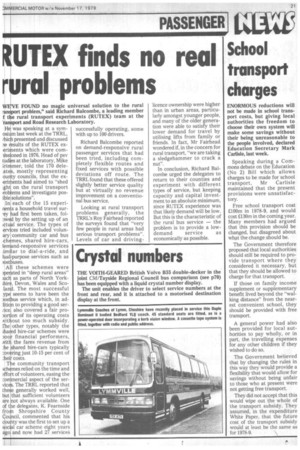School transport charges
Page 23

If you've noticed an error in this article please click here to report it so we can fix it.
ENORMOUS reductions will not be made in school transport costs, but giving local authorities the freedom to choose their own system will make some savings without their being unreasonable to the people involved, declared Education Secretary Mark Carlisle, last week.
Speaking during a Commons debate on the Education (No 2) Bill which allows charges to be made for school transport, Mr Carlisle maintained that the present provisions were unsatisfactory.
Free school transport cost £100m in 1978-9, and would cost £130m in the coming year. Many members had argued that this provision should be changed, but disagreed about what the change should be.
The Government therefore proposed that local authorities should still be required to provide transport where they considered it necessary, but that they should be allowed to charge for that transport.
If those on family income supplement or supplementary benefit lived beyond the "walking distance" from the nearest convenient school, they should be provided with free transport.
A general power had also been provided for local authorities to pay wholly, or in part, the travelling expenses for any other children if they wished to do so.
The Government believed that by changing the rules in this way they would provide a flexibility that would allow for savings without being unfair to those who at present were not getting free transport.
They did not accept that this would wipe out the whole of the transport subsidy. They assumed, in the expenditure White Paper, that the future cost of the transport subsidy would at least be the same as for 1978-9.




























































































































































